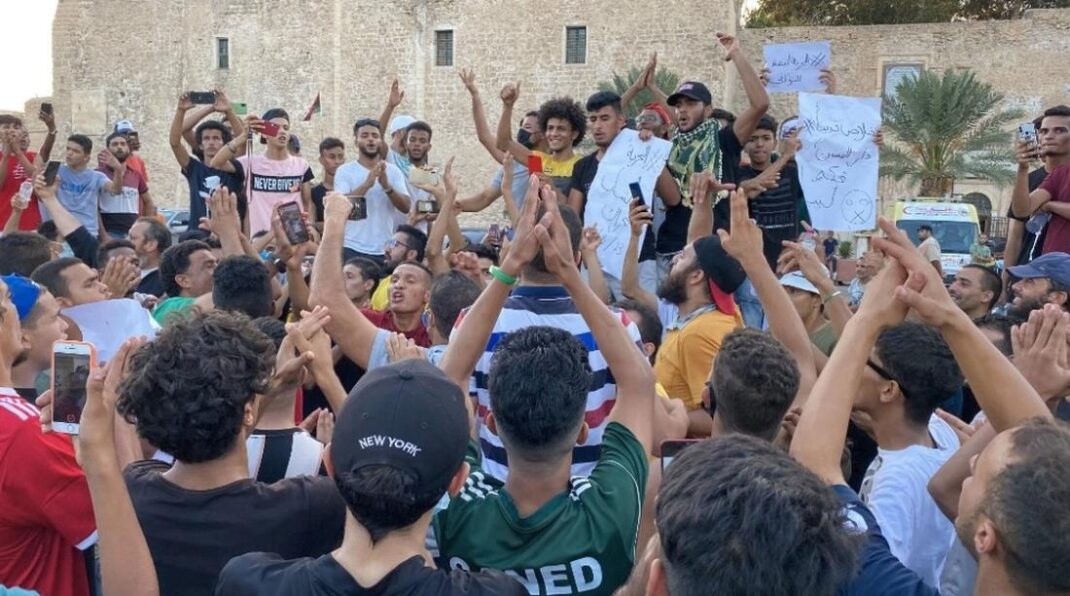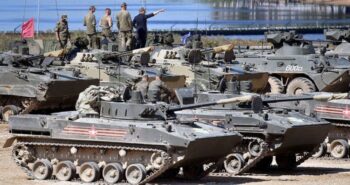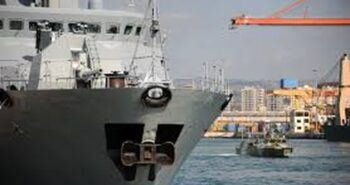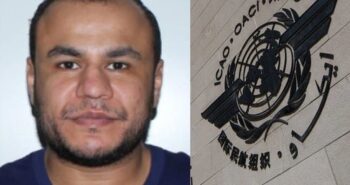By Jonathan Fenton-Harvey
 With an eruption of protests and spate of political resignations, following a promising ceasefire, international actors are now more hopeful over Libya’s conflict.
With an eruption of protests and spate of political resignations, following a promising ceasefire, international actors are now more hopeful over Libya’s conflict.
Yet there can be no solution without halting external intervention and letting Libyans themselves determine their future.
Libya has attracted greater attention over hopes that it can finally achieve a breakthrough in its devastating conflict, with a vital ceasefire agreement brokered on August 21, which also entails elections in March 2021.
A reform in international action towards the conflict will now be crucial, although there has been little indication that lackluster efforts to support Libya will improve.
The European Union (EU) praised the agreement, with its High Representative Josep Borrell announcing a “glimmer of hope that we need to build on.”
Since August’s announcement, protests have erupted across the country, showing the people’s frustrations at the country’s leaders.
People took to the streets in the capital, Tripoli, and other western cities like Zawiyah and Misrata, with a new grassroots movement called Hirak al-Shabaab (The Youth Movement) emerging.
They criticized authorities in both the east and west, over unbearable living conditions, power cuts, and a lack of social justice and elections.
Residents of the city of Gharyan meanwhile demanded municipal council elections in the city. They held banners calling for a peaceful transition of power, chanting “the current municipal council [has] expired,” reported The Libya Observer.
In eastern Libya, protestors set ablaze the House of Representatives’ (HoR) headquarters in Benghazi on September 13 – though the demonstrations are mostly peaceful. Others clashed with warlord Khalifa Haftar’s forces in al-Marj.
Libya is currently divided between two rival governments. The United Nations-recognized Government of National Accord (GNA) sits in Tripoli in western Libya, which is allied with Turkey and Qatar.
Then there is the Tobruk-based HoR, tied with Haftar’s self-proclaimed Libyan National Army (LNA) – which has received backing from the United Arab Emirates (UAE), Russia, France, Egypt, and Saudi Arabia.
Though Haftar launched a war to capture Tripoli in April 2019, a Turkish-backed GNA counter-offensive this year has turned the battle’s tide and left the LNA with dwindling influence.
Recent domestic pressure prompted key figures in both rival governments to resign.
Recent domestic pressure prompted key figures in both rival governments to resign, including GNA Prime Minister Fayyez al-Sarraj, who promised to stand down by the end of October, while HoR Premier Abdallah al-Thani submitted his own resignation on September 13.
However, there are still various obstacles. Haftar has continued to show willingness to undermine peace. Asides from reportedly violating the ceasefire in August, his forces have blockaded Libya’s oil facilities since January, to put pressure on the GNA.
Though he “conditionally” lifted the blockade on September 18, the damage is still vast, costing the country around US$9.8 billion in revenue. Libya relies heavily on oil as its largest source of finance.
The oil blockade is another episode of Libya’s increasing woes since the NATO-backed revolution against Muammar Gaddafi in 2011.
Libya’s Gross Domestic Product (GDP) fell from US$187.8 billion in 2010 to $82 billion in 2020, while GDP per capita dropped from US$31,094 to $12,360 in the same period.
It is important to note however that most of this damage accumulated after 2012. It was not the NATO intervention itself that destabilized Libya; rather, the international community’s failure to support a post-revolution political solution is a larger cause of Libya’s instability, and one that shows utter disregard for the Libyan people.
To make matters worse, the country also grapples with an upsurge of coronavirus cases.
Medical staff report working 12 hour days, while official COVID-19 figures soared from a few hundred to over 20,000 since August. Given Libya’s incapacitated healthcare system, it is difficult to control the virus and report its true scale.
Electricity has also become increasingly inaccessible for much of the population, triggering the widespread power cuts. Though wealthier individuals can afford power generators, those with less financial means often go without air conditioning or electric fans during the hot summer months.
To supposedly alleviate the problem, Egyptian officials met with representatives of Libya’s General Authority for Electricity in September to discuss ways Cairo could boost electricity supplies in Libya. Some analysts have also tipped Egypt as a viable actor to alleviate Libya’s electricity shortages.
This is a farcical proposal however, given Egypt’s role in supporting Haftar’s war for its own benefit. It could also merely serve to bolster Cairo’s own influence in Libya.
After all, this falls under the wider problem of countries intervening in Libya for their own interests, while failing to provide genuine support for the country.
There is a growing environment of lawlessness, as various nations’ ambitions in Libya consistently override international law. The UN has also lost influence, as its arms embargo is repeatedly violated and its calls for lasting ceasefires go unheard.
The primary cause of this disillusionment is that peace initiatives usually aim to appease the various external actors in the conflict. Moreover, there is constant unwillingness within the international community to confront those who are driving Libya’s instability.
The European Union announced on September 21 it would sanction three companies from Jordan, Kazakhstan, and Turkey, for violating the UN arms embargo on the country.
However, there has been no mention of the UAE, which has consistently supported Haftar and empowered his assault on Tripoli. And while the EU and NATO vocally support Libya’s internationally-recognized government, France has duplicitously backed Haftar.
Not only does this undermine the stated aims of both organizations, of which France is a member, but it also weakens their stances and thus bolsters Russia’s continued interference in the country.
Among the biggest failures, though, is the absence of giving a platform to the people’s voices in Libya.
Some regional countries have taken more progressive positions on Libya, compared with those leading the peace talks.
Tunisia has retained its position of neutrality, and its Prime Minister Hichem Mechichi also warned on September 22 that a military solution would only prolong the instability and further complicate matters.
After Morocco hosted talks between the Tripoli and Tobruk administrations on September 9, it proposed that putting Libyans first is crucial for rebuilding the country.
“The kingdom is ready to provide Libyans with a space to discuss [issues], according to their will, and will applaud them regardless of the outcome,” said Moroccan Foreign Minister Nasser Bourita, adding that Libyans themselves should decide the country’s future.
The attitudes of these two countries should echo across the international community and drive a wider push to prioritize the voices of Libyans.
Some Libyans have offered different proposals over their country’s future. One possible solution is decentralizing power away from Tripoli and giving it to local regions.
Others simply want Haftar gone and support tougher action against those who back him.
Whatever that decision is, Libyans must be at the forefront of making it.
_____________________





